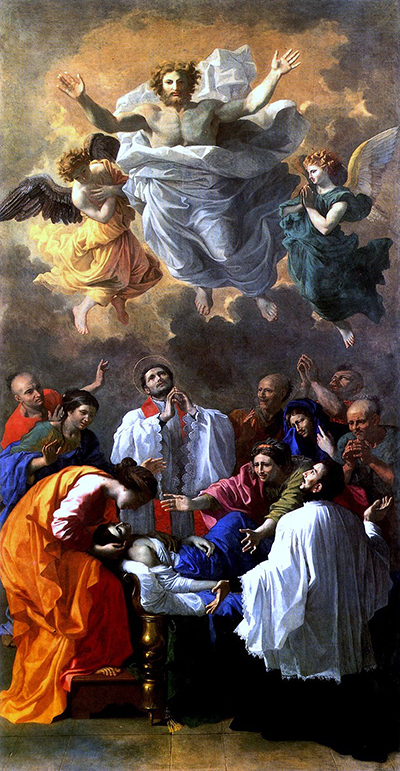Nicolas Poussin is a widely known religious painter whose works influenced the French and Italian art space in the early and mid-17th century. The Miracle of Saint Francis Xavier was one of such paintings whose reputation reached far and wide.
Shifting his based between France and Italy, Poussin preferred style was a mixture of classicism and Baroque. This is seen through precision, colour mix and realism. The painting is a representation of a religious scene where a deity surrounded with angels appear to a group of people. The people appear to be praying for the restoration of a person lying on a bed. The appearance represents divine intervention for the restoration, a classical sign of the importance deity has over humankind.
The colour schemes on the painting were vivid, making the drawing more illuminating and clear. The concept is picked from the religious doctrine which Poussin had deep connections. This trait was captured when he went to Rome for his artistic academy tour. Thanks to one of his influencers in Rome, Cardinal Francesco Barberini, the majority of paintings done afterwards bear the same theme. The painting was done using oil on canvas. It was painted in 1641, just around the same time Poussin painted the Holy Family and Truth Stolen Away by Time Beyond the Reach of Envy and Discord. All the paintings had religious connotations with classical tendencies.
In his early years in painting, his family was not supportive. This made him run to Paris where he worked with various painters to learn the trade. His visit to Rome afterwards saw him interact with other baroque painters like Raphael and Cassiano dal Pozzo who helped him perfect the style. He got a job upon return to France as the King's Painter but soon dropped it. He worked with Giambattista Marino and Georges Lallemand in Italy, and François Duquesnoy, Jacques Stella and Andrea Sacchi in France. Throughout the 1630s to 1650s, he drew masterpieces which made him one of the best Classical Baroque painters of the time. Some of his famous works at that time include The Assumption of the Virgin (1638), Ordination (1634-40) and Self Portrait (1649). Throughout his experience, he was instrumental in developing talents of numerous painters, among them Andre Felibien, Sebastien Bourdon and Pier Francesco Mola.




